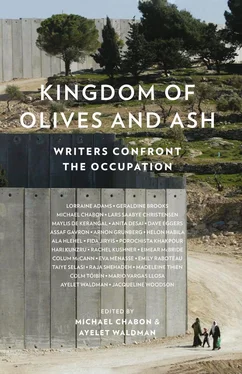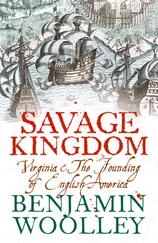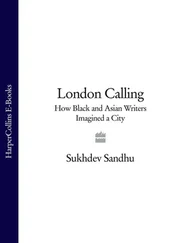The occupation turns your joy in walking barefoot on the sandy beach into a luxury that a member of a struggling people cannot allow himself. The occupation reduces your joys and desires to the lowest point. That is how they triumph over you without firing a shot.
The soldiers ask you about everything. You must be convincing to get past the barrier or cross the checkpoint. There is no such thing as normal under the occupation. Everything must be exceptional, out of the ordinary, worthy of the soldier’s bothering to read your permit or search your luggage. The occupation turns your life into a series of exceptional moments between which stretch dead, passionless periods of time, filled with indolence, inactivity, and lack of desire.
OFRA: AMONG THE FIRST SETTLEMENTS ESTABLISHED BY THE GUSH EMUNIM movement, in collusion with that dove of peace Shimon Peres. In 1977, the Likud Party came to power, and Ariel Sharon as a cabinet minister undertook to pursue the “swiss cheese” principle of settlements: a hole here and a hole there. With time, these holes cohered into a body, as the Palestinian body turned into holes. Palestinians became holes in the settlement body, an irritating thorn in the settlers’ ass, to borrow from a metaphor used by Education Minister Naftali Bennett. This game is fixed: he who possesses the power, control, and rule will become a body, and you, who lack these, will become a black hole. The Palestinian black hole has no element of time; as with any black hole, it obliterates, it hides you in your segregated streets and the segregated legal system and the segregated security measures.
With the ratification of the Oslo accords in 1993, the swiss cheese course further intensified: bypass roads, “legal and agreed upon,” were established to legitimize the settlements permanently, transforming these distant, remote places in frightful locations (holes) into suburbs convenient to Jerusalem and Tel Aviv from which one might come and go using roads restricted to Jews, modern streets (as in Europe or America), unlike the Palestinians’ streets (as in the Middle East), which increased the popularity of living there (in the body of the cheese). For that, you must guarantee freedom of movement for the new Jewish residents in the luxurious suburbs, and limit this freedom for the other side, so that the new residents of the suburbs feel safe and secure. How? By a number of basic means, including limiting the exits and entrances to and from the Palestinians’ towns and villages to only two for each town; and directing the Palestinian traffic toward the “must-use roads.” In this way the mouse can be kept inside the holes. He can go out only on orders and can come back only on orders. This was a win-win: control over these bothersome, overly possessive Palestinians, and a comfortable and economically beneficial suburban life for the new owners of the place.
THE SHEPHERD ABU ALI STROLLS ALONGSIDE THE LANDS OF THE PALESTINIAN village of Susiya in the Hebron Hills and tries to maintain the status quo: it is forbidden to graze in the hills in that direction, because that is a closed military zone, and it is forbidden to graze in the hills opposite, because they belong to the settlers, so he must be careful that none of the dozens of sheep he is tending violate these restrictions. We stand with him in the bitter cold, talking and smoking. I am surprised by how he is able to stand there with us without gloves or a heavy coat. A stubborn, cold, painful question occupies me: What have they done to us, Palestinian shepherd? Why are you this foreign to me; do you know how we can break the ice (literal and figurative) between us? What does Abu Ali want from life? To be allowed to graze his sheep on the forbidden hill opposite, where there is ample pasturage. How is it possible for this wish to be so hard? It is nothing but a wish to save time: if he grazes his sheep on the hill, the sheep will satisfy their appetites quickly, and he will go back to his cave or hut quickly to sit next to the warm stove with his wife and children. All he wants is to shorten this bitter, cold time.
But this wish runs into “official” complications: the settlers have planted trees in tubs in order to assert that they are growing. The Ottoman law that is still in force here states that whoever cultivates the land for several years obtains the right to possess it; the law does not clarify the meaning, size, or extent of “cultivation.” To work around the law, the settlers plant the trees in tubs and spread them over vast areas in order for the land to become “theirs.” One and a half percent of the land in the West Bank is cultivated by settlers, some of it in this way. It is an invented method of cultivating the land that does not concern itself with time, or time passing: you don’t need decades of tilling the earth, tending it, watering it, sleeping under its trees, learning its language and listening to its stories, for it to become yours. These Palestinians are traditional in their farming, and slow; whereas high-tech farming in tubs is very fast. Another Israeli “exit.”
In Susiya, they are searching for water and wells. They dig wells and the army floods them. There is no life without water, and there is no water without a permit, and there is no permit unless you are part of the controlling settler body. It does not count that you were here before the occupation and even before the establishment of Israel; what counts is that you have become outside the context. And the context is that the hole has become the body. You have become a bothersome hole. Susiya is not bothersome for this reason alone, but also because it was originally built on a highly “significant” archaeological site. And so they expelled its residents, and in a grand paradox, brought in Jewish settlers to replace them. For this is a known fact: Jews are better than Palestinians at living in ruins. The whole country was established to rebuild ruins, so who are these shepherds from Susiya to demand back a place that is reserved for Jews only?
THE WALL ROBS YOU OF TIME AND YOUR RIGHT TO KILL IT AS YOU LIKE. Walking through the fields or strolling on the dirt roads is no longer a given. The walls tear your existence into little unconnected bits of approved areas and forbidden areas, so you become an acrobat who must leap, skip, bend, and crawl according to the type of permit, the wish of the area commander, or the considerations of the sullen soldier at the checkpoint. The wall is a memorial to the past; it was raised upright between everything you have experienced before and everything you will experience after. Distant kilometers of barbed wire and tall cement slabs stand between you and your ability to extend your gaze and imagination toward the sea, for example, or toward a nearby brook, or the fast road that carries people from the sea to the brook that was once yours.
Nabi Saleh: the stubborn, peaceful demonstration against the settlements in general, and against the nearby settlement of Halamish’s takeover of Nabi Saleh’s spring in particular. Tear gas and metal bullets covered with rubber. Amid the ferocity of the confrontations and the suffocation in the houses, a mother drops her little daughter from a second-story window to her husband in the street to save her from suffocating. It is both a courageous and a rational deed. Feelings mixed, between admiration for the willingness of this mother to do anything to save her child, and astonishment at her willingness to drop her from the window. But this child does not yet know the meaning of paradox: afterwards she refused to go near her mother for two whole months! If you ask me for a one-sentence definition of the meaning of the occupation, I will tell you with great confidence: a mother dropping her daughter from a window to save her life.
But time is liable to ease any paradox and dispel any admiration. The occupation resembles the Thousand and One Nights . Every day brings a new story, a new adventure that makes you forget what came before and prepare for what comes after. The complex bureaucratic machine is the Scheherazade of our era. From among its shirtfronts policies emerge, and by way of its tent flaps stories are generated: in the line of cars at the checkpoint; in the ambulance that carries a patient who will die of waiting (I almost wrote of boredom , but that metaphor would be excessive here); in a demonstration overrun with conquering military jeeps; in the liaison office that refuses, in bulk, entry permits to Israel for medical care, except for those willing to collaborate with the machine; in the drinking water that “takes its time” in coming and going; in the waste of two hours of your life at the impromptu checkpoint, which you later find out was arbitrary and no longer meant anything to anyone. What a humiliation, to be held up at an arbitrary checkpoint!
Читать дальше











